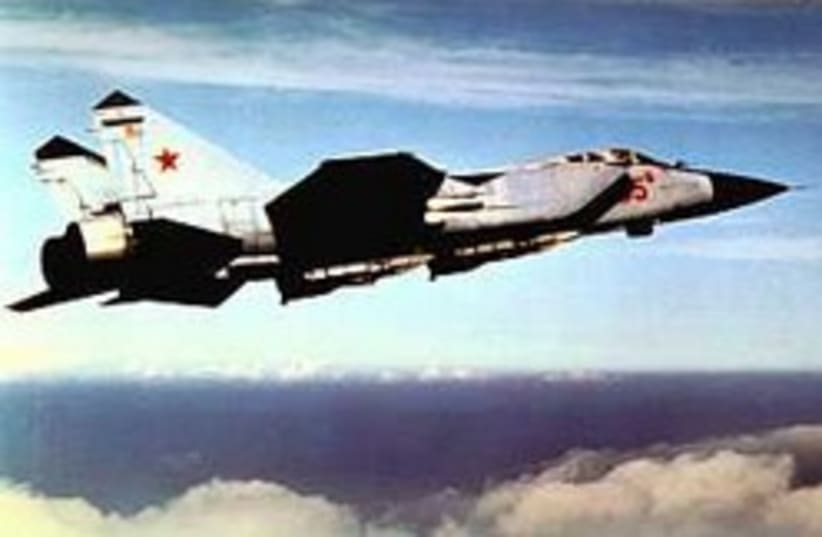According to these reports, Russia did not sellmore planes to the Syrians for the simple reason that Damascus does nothave the ability to pay for any more. The reports said that two of theplanes would be operational, and the other two would be purchased for"cannibalization" purposes, amid a Syrian realization that Russia wouldnot provide effective "after-sale service," and that these planes wouldbe used for "spare parts."
Reports of a potential sale of MiG-31E fighter jets to Syriasurfaced in 2007 but were quickly denied by Moscow and the officialstate arms-trading monopoly Rosoboronexport, which issued a statementsaying "Russia has no plans to deliver fighter jets to Syria."
Earlier this year, however, the former head of the Pentagon'sDefense Intelligence Agency, Lt.-Gen. Michael D. Maples, confirmed intestimony before the Senate that Damascus and Moscow had finalized adeal and that the jets would be delivered to Syria in the near future.
The MiG-31, officials explained, mainly serves todayas an intelligence-gathering plane. The plane is a newer version of theMiG-29, which is already operated by Syria and is also used forintelligence purposes.
"Due to its ability to fly fast and at high altitudes, it issuitable for gathering intelligence but does not maneuver well at loweraltitudes," explained Yiftah Shapir, head of The Middle East MilitaryBalance project at the Institute for National Security Studies in TelAviv.
The contract, Syria's first purchase of fighterjets in more than 20 years, is also the first export deal for theMiG-31E, a heavy twin-engine interceptor fighter capable of flying atnearly three times the speed of sound. The aircraft was designed in the 1980s for interceptinglow-flying American nuclear-tipped cruise missiles and remains themainstay of Russia's air defenses. The MiG-31 was considered a keycomponent of defenses against a possible US attack. While Israel does not need to be concerned with the MiG-31sale, defense officials warned on Monday about the sale of MiG-29fighter jets to Syria, which are very similar to the F-16s operated bythe Israel Air Force and can function as interceptors and bombers. Syria is interested in the SMT model of the MiG-29, whichfeatures a significantly greater range than the older versions, hasimproved radar systems and is capable of carrying a broader array ofweapons.
| More about: | Israeli Air Force, Damascus, Russian Empire, Moscow |
